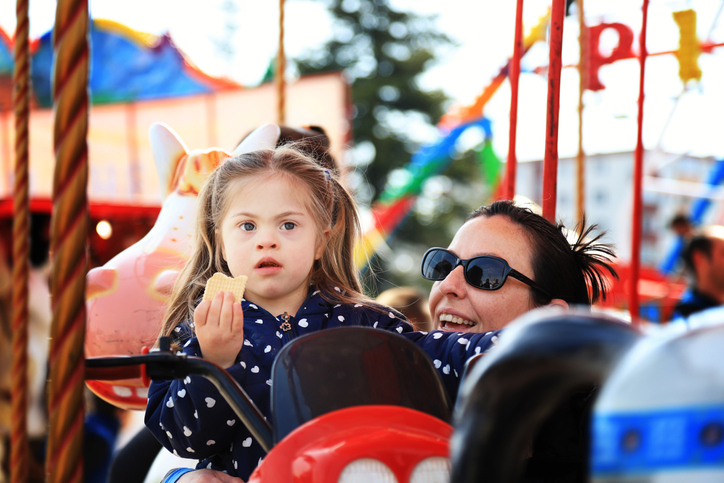Accompanying certificate

Companion certificate is a card that can be given to people with functional variations who need a companion to participate in society, and functions in many ways as an activation and inclusion tool.
With an accompanying certificate, the person can take the necessary companions with them (e.g. parents, BPA assistant, support contact, grandparents, etc.) on many different offers and activities, either completely free of charge or at a reduced price.
Accompanying certificates also usually give the right to "show consideration" bands in amusement parks, so that they do not have to wait in queues or that they are prioritized in queues. For many, this can be the difference between whether they can participate or not.
Who can get a companion certificate?
All persons with illness or functional variation, such as e.g. muscle disease, diabetes, cognitive diagnoses, sensory loss, walking difficulties, allergies, heart disease, lung disease, mental disorders, arthritis, neurodivergence, metabolic diseases, etc.
Unfortunately, a companion certificate is not a right, and it is up to the municipalities to decide who gets it or not. Unfortunately, many municipalities also have a lower age limit of 8 years. But in January 2023, Bufdir came along new national guidelines for companion certificates, where they have moved away from a lower age limit, so our advice is to apply anyway. Argue well and thoroughly for why your child needs an accompanying certificate. Functionally healthy children must not bring a wheelchair or other aids, feeding pump, oxygen, respirator, CPAP/BiPAP, emergency bag, medicines, syringes and other medical equipment. Functionally healthy children also have the stamina to walk short and longer distances, tolerate noise and crowds, and they don't just act out because they have to queue or the carousel is the wrong colour. They must also not be supervised and cared for part of or all of the day.
Where can companion certificates be used?
It can be used across municipal and county borders, for example on public transport, cultural events (e.g. concert, theater and museum), cinema, aquarium and the like, and in most major amusement parks and the like both in Norway and in other countries (e.g. Daisy, Legoland, Liseberg, Disneyland).
Always check the website or call the relevant place you want to visit to see if they accept companion certificates and their routines around this.
Application requirements
- Documentation that the need is permanent, i.e. lasts for at least 2 years.
- Medical certificate on the child's need for supervision and assistance. Ask the doctor to explain why it is important to have an accompanying certificate for the child.
- A thorough application text. Here, it may be a good idea to describe the differences in your child's needs for supervision and help, compared to able-bodied children of the same age.
- Feel free to refer to Bufdir's guidelines for companion certificates in the application, if you live in a municipality with a lower age limit.
You can apply either digitally or via paper, depending on which municipality you live in.
Complain
If you are nevertheless refused an application for a companion certificate due to the child's age, you should complain and show proof Bufdir's guidelines, as well as refer to other nearby municipalities that do not practice a lower age limit.
Here you can read about how you can complaint to the municipality.
Useful links
- SUBJECTS: Accompanying certificate, Equality, Rights
- Published:
- The lion mothers
- SUBJECTS: Accompanying certificate, Equality, Rights
- Published:
- The lion mothers